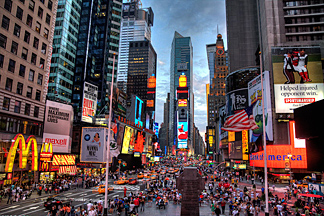100 black people to become millionaires through former NBA forward’s cannabis incubator program

Former professional basketball player Albert Harrington, “Al,” is taking strides towards black entrepreneurship. The 40-year-old cannabis company CEO recently told CNBC that he intends on helping 100 black individuals become millionaires through involvement in the legal weed sector.
Harrington aims to bring people’s attention to the power of the “black dollar” through an incubator partnership with Viola Brands — the empire he founded in honor of his grandmother.
“A lot of brands that are on the black market that has a lot of credibility and unbelievable following, have market share, but they just don’t know how to get into the legal market,” the former National Basketball Association forward said, adding that, “what I’m hoping is that we use this time to educate ourselves and realize that we have a lot of power amongst ourselves if we just pay attention and support one another.”
His mission has been revealed in the wake of George Floyd’s death, which has sent shockwaves across global black communities since the incident occurred on May 25 in Minnesota. As unfortunate as the tragedy was, there’s no denying the fact that it has stimulated discussions regarding social injustice and police brutality towards people of color.
Al Harrington is pushing for diversity in the cannabis sector
The primary goal of Harrington’s efforts is to make black market cannabis products legal. In order to accomplish this task, Viola is launching an incubator program to increase cannabis access for people in black communities. In late 2019, Harrington raised $16 million through Viola’s Series A funding round.
The program’s launch comes at an important time, what with states like New Jersey and New York edging closer to cannabis legalization. Currently, Harrington is concerned about the harsh prison sentences faced by Blacks who have committed cannabis offenses.
“That is something I will continue to harp on; continue to bring awareness to because once again, I feel like the war on drugs was aimed towards our community, and they used cannabis as pretty much the main drug to continue to lock us up,” explained Harrington, who argues that the money gleaned through cannabis legalization is not benefiting blacks, despite the fact that black communities “pioneered” the industry.
Black spending power is in the trillion-dollar range
According to Harrington, Viola’s incubator program will draw attention to the sheer power of what he has dubbed the “Black dollar.” The New Jersey native hopes that the conversations and protests surrounding Flloyd’s death will encourage ongoing debate about the absence of economic opportunities in black communities.
Obtaining a license to cultivate and monetize cannabis products in legal U.S. states is “nearly impossible” for entrepreneurs who are dabbling in the legal weed sector, says Harrington. However, he affirms that specific cannabis products could boast “million dollar valuations” if they are distributed across the right channels and promoted in the right way.
Since black spending power is estimated to reach $1.54 trillion by 2022 – based on a 2018 study by Nielsen – the profit potential associated with broadening cannabis access cannot be ignored. In the meantime, Harrington has confirmed that he will donate 20,000 CBD topical creams to protestors who have endured chronic pain.







